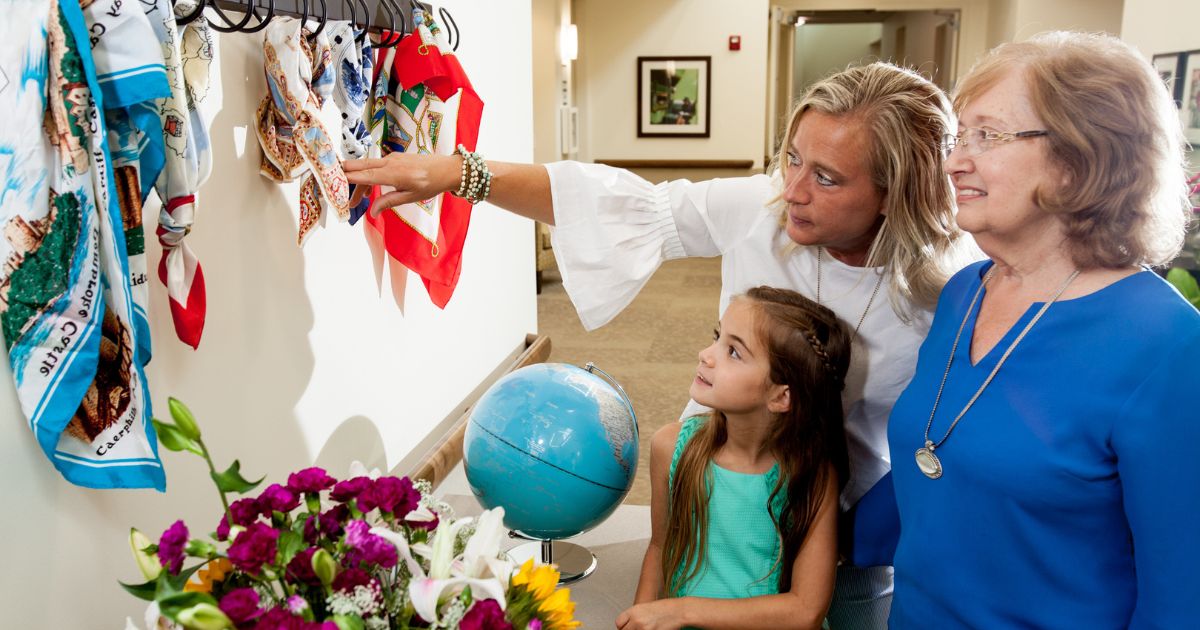Social isolation among older adults living with dementia can quietly intensify the effects of memory loss. As memory fades and communication becomes challenging, many individuals begin to withdraw from interests and social connections which can accelerate cognitive decline and harm mental health.
Learn why staying engaged is essential for cognitive and emotional well-being, and get practical tips in this blog from Abe’s Garden Community on how to keep your loved one connected.
The Effects of Social Isolation on Cognitive Decline
The brain thrives on stimulation, and social interactions is essential to mental exercise for brain health, including:
- Language processing during conversations
- Memory recall when sharing stories or recognizing faces
- Problem-solving in social situations
- Emotional regulation through human connection
Research shows that individuals who are socially isolated can experience a faster progression of cognitive decline, such as increased confusion, disorientation, and memory loss.
How Social Isolation Affects Mental Health
Social isolation can affect emotional well-being also. For example, seniors may experience depression and anxiety if they feel alone and lose their sense of purpose and self. Socially isolated older adults may have:
- Increased agitation and behavioral issues
- Sleep disruptions and changes in appetite
- Heightened fear and paranoia
Why Socialization Is Essential to Overall Health and Well-Being
Staying connected to others and things that matter to you can boost your brain health and enhance lifelong learning. Working your brain makes it stronger and more flexible. Additionally, the more social activities you have, the more likely you are to practice proper hygiene, choose nutritious meals, and engage in regular physical activity.
Consider the following benefits of socialization for older adults and for those living with dementia:
- Encourages the use of remaining cognitive abilities
- Reinforces memory through familiar faces and routines
- Provides mental challenges that keep the brain active
- Stimulates neural pathways through conversation and shared activities
- Experiences joy, laughter, and positive emotions
- Reduces feelings of fear and confusion
- Helps maintain their sense of self and identity
- Encourages movement and activity
- Maintains appetite and nutrition through shared meals
Practical Ways to Keep Your Loved One Connected
You can help your loved one stay connected to friends and family by setting up a daily routine with several social opportunities. For example, find an activity they enjoy and take a class in a local senior center or library where your loved one can learn and engage with others with similar interests.
1. Connect with Friends and Family
Schedule regular calls or visits with family each week. You can even set up a schedule, so your loved one knows when to expect the next conversation. Video chats and phone calls can help older adults maintain meaningful relationships with loved ones who may live far away.
2. Stay Active and Engaged through Physical Exercise
Join a walking club or senior fitness class to remain physically active and connected with peers with similar abilities. If committing to an organized activity is too challenging, consider taking regular walks in the neighborhood. You’ll likely become acquainted with neighbors and may find a few who’d like to join in on the fun.
3. Participate in an Adult Day Program
Find a memory support day program, also known as adult day programs, near you that provides structured social interactions with peers. Most adult day programs, like The Club at Abe’s Garden, offer activities tailored to individual cognitive abilities. Participants enjoy social engagement along with special programs in music, art, and exercise.
Move Forward with Compassion
With intentional effort, creative solutions, and community support, you can help your loved one maintain social connections that enrich their life and slow cognitive decline. The key is starting early, being flexible as needs change, and remembering that even small social interactions can make a difference.
Are You Ready to Explore Memory Support Day Programs?
Download our free guide to help you understand the options available to you and your loved one. You’ll learn about our approach at The Club at Abe’s Garden, the benefits of adult day programs, and whether our program is a good fit for your loved one.

